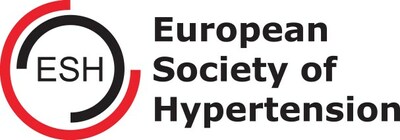Published on: Wednesday, 28 June 2023 ● 4 Min Read
MILAN, June 28, 2023 -- The European Society of Hypertension (ESH), the leading hypertension society in Europe, released updated and expanded 2023 ESH Guidelines for the Management of Arterial Hypertension during three oral presentations at the 32nd Annual European Meeting on Hypertension and Cardiovascular Protection Meeting in Milan, Italy. The full guidelines will be published in the August issue of the Journal of Hypertension. The new guidelines are designed to serve as an essential resource on the latest scientific evidence for healthcare professionals around the world that treat individuals with hypertension.

Arterial hypertension (elevated blood pressure) is a common and leading preventable cause of heart attack, stroke, kidney failure and death that impacts 1.28 billion adults worldwide. Some risk factors for hypertension include obesity, poor diet, lack of exercise and stress. Arterial hypertension constitutes the most prevalent and important risk factor for cardiovascular morbidity and mortality globally despite the availability of effective pharmacological treatments. In addition, approximately half of individuals with hypertension do not meet guideline-directed blood pressure (BP) goals. While medication and lifestyle changes can help decrease hypertension, they alone are sometimes not enough.
"At ESH, we see the impact of this public health crisis first-hand and want to share real-world, evidence-based recommendations to address this silent killer, which is still underdiagnosed and often difficult to treat," said Giuseppe Mancia, Emeritus Professor of Medicine, University Milano-Bicocca, Italy and Chair of the guidelines.
The comprehensive ESH guidelines were written and approved by a diverse panel of European hypertension specialists for practicing physicians and healthcare professionals with hypertensive patients.
Highlights include:
Updated Measurement & Monitoring Protocols
Expanded Lifestyle Changes in the Management of Hypertension
Novel and Simplified Guidance for Prescribing Patterns for Drug Treatment
Selection of Major Drug Classes
Innovations in the Treatment of Hypertension
Novel Treatment Algorithms
New approaches to reach patients with chronic conditions including:
Expanded Screening & Management Recommendations Across Patient Populations
"These new guidelines offer a roadmap for creating a customized approach for treating different patient populations and overcoming patient inertia," said Professor Reinhold Kreutz, Charité - University Medicine Berlin, Berlin, Germany and co-chair of the guidelines. "For the first time, recommendations around a wide spectrum of important co-morbidities including the impact of COVID-19 offer a more complete picture of how to manage hypertension with multiple factors at play."
Video presentations with guideline co-authors will be available through the ESH website.
About the European Society of Hypertension Meetings
The annual European Hypertension Meetings offer the highest quality scientific programs related to research in Basic and Clinic areas and Clinical Management in Hypertension with State-of-the-Art Lectures, Satellite Symposia, Teaching Sessions and credits for qualifying as Hypertension Specialists of the European Society of Hypertension.
No comments posted
© 2019 KIVAA Group | All right reserved. www.theindustrial.in
Leave a reply: